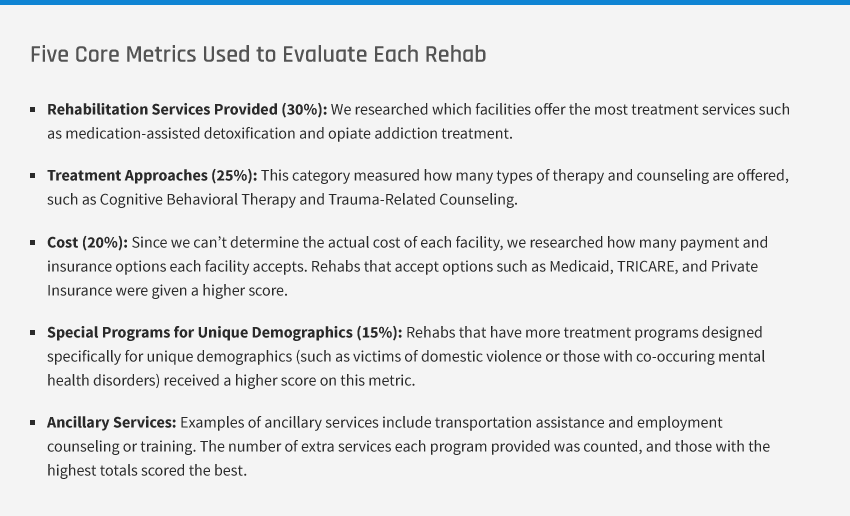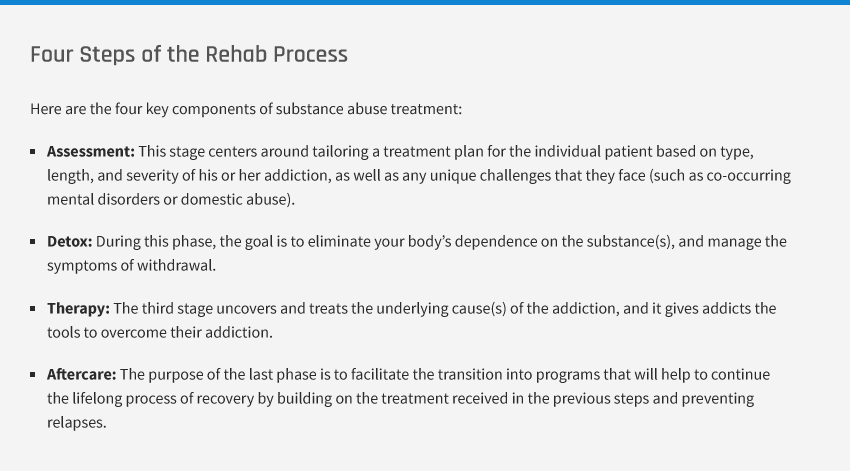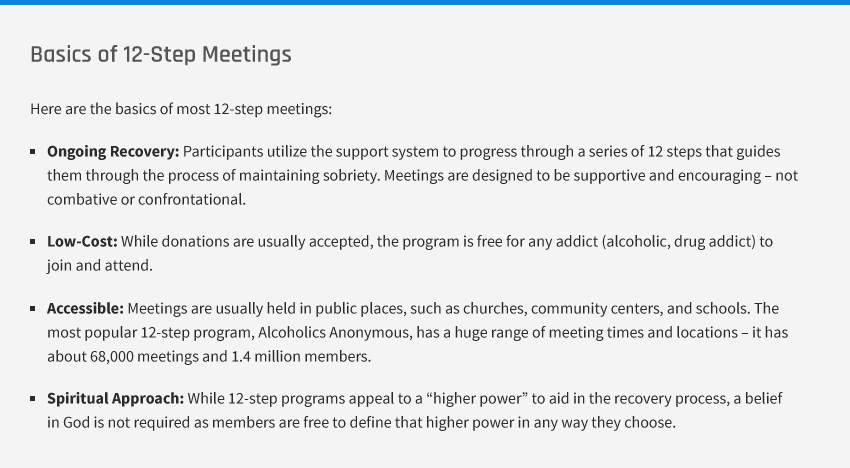Drug abuse is not the only issue threatening public health in North Carolina. Excessive drinking among adults has increased considerably in Wake County and North Carolina in recent years. Between 2014 and 2019, the percentage of adults who reported binge or heavy drinking in Wake County rose 33.33%, from 15% of adults to 20% of adults. In North Carolina, the percentage of adults who reported excessive drinking rose comparably to the county, increasing 30.77% in the same time period. Furthermore, the percentage of adults who reported excessive drinking remained higher in Wake County than in the state each year between 2014 and 2019.
Alcohol, Drug, and other Rehab Centers in Cary, NC
TABLE OF CONTENTS
Getting Help
What to Consider When Choosing a Rehab Center
When thinking about which rehab programs and treatment options to explore, some good questions you should consider asking include:
- Which service setting is best for me? Read the following guides to understand residential inpatient programs and outpatient programs.
- Which specialized rehab programs do I need? Read about the differences between holistic rehabs, rehabs for dual diagnosis, and programs only for alcohol and drug detox.
- How long should I stay? Consider the differences between a shorter rehab length (30 days) or a longer-term option (60, 90, or 120+ days).
Several factors will impact your rehab options, such as the severity of your addiction, your financial position, and your unique personal circumstances.
For more information on how to make all of these decisions, read our guide to Choosing the Right Rehab.
The Best Rehabs in Cary, NC
The cost of rehab can be high, depending on your treatment needs and your location. However, there are ways for you to find help to break free of addiction, regardless of your insurance status. According to the Substance Abuse and Mental Health Administration (SAMHSA), there are 63 substance abuse treatment centers in the Cary area. Many of these organizations are on a mission to provide substance abuse recovery services to residents, regardless of their financial status. Out of these 63 rehabs, RJ Blackley Alcohol and Drug Abuse Treatment Center has received the highest overall scores based on our five core metrics.

We used these five core metrics to evaluate the quality of each facility. For more information, feel free to read a full breakdown of our filtering process and ranking methodology.
1. R.J. Blackley Alcohol and Drug Abuse Treatment Center
With an overall score of 6.9 points out of 10 possible points, R.J. Blackley Alcohol and Drug Abuse Treatment Center provides medical detoxification and psychiatric stabilization services on an inpatient basis. The center accepts clients on opioid medication and offers opioid treatment services utilizing Buprenorphine and Naltrexone. Treatment approaches employed by the center include such techniques as anger management, cognitive behavioral therapy, motivational interviewing, and relapse prevention.
Assistance with obtaining social services, domestic violence services, early intervention for HIV, housing assistance, and mental health services are among the multitude of ancillary services offered at R.J. Blackley. Special programs aimed at unique demographics are limited to pregnant and postpartum women and persons with co-occurring substance use and mental health disorders. It also offers services for the deaf and hard of hearing.
Accepted payment for treatment services includes federal funding, Medicaid and other state-funded health insurance, private health insurance, and self-payment. Payment assistance and a sliding fee scale based on income and other factors are also available.
- Rehabilitation Services Provided: 8.3
- Treatment Approaches: 8
- Cost: 6.66
- Special Programs for Unique Demographics: 1.34
- Ancillary Services: 9.25
2. Fellowship Health Resources, Inc.
Fellowship Health Resources, Inc. had an overall score of 6.4 points out of 10 points. The center provides substance abuse services on an outpatient basis. It also offers opioid treatment services including administration, prescription, maintenance, and relapse prevention involving Buprenorphine and Naltrexone. Treatment approaches used at this facility include such techniques as brief intervention, motivational interviewing, community reinforcement, trauma-related counseling, cognitive behavioral therapy and both 12-step facilitation and Matrix Model approaches.
The center offers a multitude of ancillary services ranging from early intervention for HIV, housing services and mental health services to peer-support services, social skills development, and transportation assistance. The center offers select special programs for unique groups, which include persons with co-occurring mental health disorders and clients referred from the court system.
Payment options include federal funding, Medicaid and other state-funded health insurance, private health insurance, and self-payment. A sliding fee scale based on income and other factors and other payment assistance are also available.
- Rehabilitation Services Provided: 7.47
- Treatment Approaches: 8
- Cost: 5.55
- Special Programs for Unique Demographics: 1.34
- Ancillary Services: 8.88
3. NC Recovery Support Services
NC Recovery Support Services had an overall score of 6.1 out of 10 possible points. The facility provides substance abuse and relapse prevention services on an outpatient basis through the utilization of medication-assisted treatment. The center accepts clients on opioid medication and prescribes and administers both Buprenorphine and Naltrexone.
This center scored a perfect 10 points for its wealth of treatment approaches, including dialectical behavioral therapy, rational emotive behavioral therapy, motivational incentives, anger management, community reinforcement, and more. Complementary ancillary services offered by the center range from STD and HIV testing to nicotine replacement therapy to social skills development.
Special programs aimed at unique demographics are limited to persons with co-occurring substance use and mental health disorders and persons who have experienced sexual abuse and/or trauma. Payment options are somewhat limited as well but do include federal funding and Medicaid and other state-funded health insurance. Payment assistance is available.
- Rehabilitation Services Provided: 6.64
- Treatment Approaches: 10
- Cost: 2.22
- Special Programs for Unique Demographics: 3.35
- Ancillary Services: 7.03
Top-Rated, Low-Cost Treatment Centers in Cary
| Rank | Rehab | Total Score | Contact Information |
| #1 | R.J. Blackley Alcohol and Drug Abuse Treatment Center |
6.9 | 100 H Street Butner, NC 27509 Main Tel: 919-575-7928 |
| #2 | Fellowship Health Resources, Inc. | 6.4 | 5509 Creedmoor Road Raleigh, NC 27612 Main Tel:: 919-573-6520 Intake Tel: 919-573-6544 |
| #3 | NC Recovery Support Services | 6.1 | 109 Ellington Street Clayton, NC 27520 Main Tel: 919-502-7708 |
| #4 | Triangle Residential Options for Substance Abusers, Inc. (TROSA) |
5.5 | 1820 James Street Durham, NC 27707 Main Tel: 919-419-1059 |
| #5 | Daymark Recovery Services Lee Center | 5.1 | 130 Carbonton Road Sanford, NC 27330 Main Tel: 919-774-6521 |
| #6 | Freedom House Recovery Center Durham Outpatient Services | 5.0 | 400-D Crutchfield Street Durham, NC 27704 Main Tel: 919-251-8806 |
| #7 | Carolina Outreach LLC Smithfield | 5.0 | 831 S. Brightleaf Boulevard Smithfield, NC 27577 Main Tel: 919-300-4315 |
| #8 | SouthLight Healthcare | 5.0 | 3125 Poplarwood Court, Suite 150 Raleigh, NC 27604 Main Tel: 919-787-6131 Intake Tel: 919-787-6131 x 1135 |
| #9 | The M.E. Green House | 4.8 | 139 Pinehurst Avenue, Suite A Southern Pines, NC 28387 Main Tel: 910-725-1246 |
| #10 | Daymark Recovery Services Moore Center | 3.8 | 205 Memorial Drive Pinehurst, NC 28374 Main Tel: 910-295-6853 |
Finding a Substance Abuse Treatment Center in Cary
Start by determining your coverage
To determine your best options for a treatment center, you will need to learn about your health coverage. You can reach out to your private or healthcare marketplace insurance provider to find out which rehabs are available to you. To learn if you qualify for low-income Medicaid services, and to determine eligibility, visit medicaid.ncdhhs.org. No matter the type of coverage you have, all public and private insurance companies must cover substance abuse treatment for qualified individuals.
Use our database to find a treatment center near you
The tool below lists all of the treatment centers in the state of North Carolina recognized by the Substance Abuse and Mental Health Services Administration (SAMHSA). Input your zip code and select the filter icon to find relevant treatment centers near you.
Schedule an assessment
If you are pursuing insured treatment, your first step will likely be scheduling an assessment by a qualified individual, such as a therapist or counselor. Facilities will often provide assessments, or your primary care provider may be able to refer you. Contact companies in our database above to find out if they will provide an assessment service.
Find a Rehabilitation Facility Near You
Filter Your Search
Popular Searches
Type Of Care
Treatment Approaches
Service Setting
Age Groups Accepted
Ancillary Services
Facility Operation
Facility Smoking Policy
Gender Accepted
Language Services
License Certification Accreditation
Payment Assistance Available
Payment Methods and Insurance Accepted
Special Programs Groups Offered
What to Expect in Rehab
Substance abuse treatment is a multifaceted industry with numerous treatment approaches and philosophies. As a result, the science of studying addiction is constantly shifting and improving. The core elements of rehabilitation, however, remain the same.

For more on what to expect in rehab, read our guide on the addiction rehabilitation process.
Finding Aftercare in Cary
The rehabilitation process is a lifelong journey, and, without proper aftercare upon release from a treatment facility, the risk of relapse increases. Many flexible aftercare options are available to communities, such as follow-up visits for continued therapy, sober living residences, and group therapy. Research demonstrates that long-term participation in aftercare activities dramatically improves the outcome of patients’ rehabilitation efforts.
The 12-step process for recovering from alcohol addiction was created by Alcoholics Anonymous, a nationwide addiction support group. Today, many other resources employ a similar treatment approach, including Narcotics Anonymous – or NA – for those struggling with drug addiction.

Contact the appropriate local organization to find an AA or NA meeting near you
See our directory tool below to find local organizations that can help you find Alcoholics Anonymous (AA) or Narcotics Anonymous (NA) group meetings near your location. However, meeting times and locations do change periodically, so it is important to call ahead to ensure the online information is accurate.
Alcoholics Anonymous (AA) and Narcotics Anonymous (NA) Database
| Name | City | Program | Telephone | Spanish Hotline |
|---|
Sober Living Homes
Sober living homes, or recovery residences, encourage the independence of recovering addicts and help them to both maintain their sobriety and evolve into functional members of society. The supportive and positive environment of a sober living home is particularly helpful to addiction recovery, and residents’ recovery efforts benefit from and are protected by a community that has a zero-tolerance drug and alcohol policy. Research shows that persons who integrate into a community that incentivizes productivity, in particular, the cultivation of skills used to find stable employment and build healthy relationships, find encouragement that allows them to focus on breaking free of the cycle of substance abuse and building a life outside of their addiction.
Residents of sober living are expected to care for their homes as if they were renting, including paying rent costs and completing chores. Support groups in each home are based upon house principles, and attendance is typically mandatory. Residents are usually welcome to stay from a few months to as long as several years, given they follow all rules and avoid relapse, as these homes have zero-tolerance drug and alcohol use policies.
You can find sober living homes in Cary by checking our database, or you can select the appropriate filter from our tool above. Alternatively, you can head to our guide on sober living homes and learn more about them, as well as search for a certified recovery residence in your area.
Substance Abuse in Cary
Unintentional synthetic narcotic deaths skyrocket in Wake County and North Carolina
What was once a lesser issue with synthetic narcotics, which include opioids like fentanyl, tramadol, and meperidine, has soared in prevalence at both the county and state levels. In recent years, unintentional synthetic narcotic overdose deaths have multiplied in Wake County and North Carolina. Between 2013 and 2017, synthetic narcotic overdose deaths increased a mind-blowing 1,850% in Wake County, from four deaths to 78 deaths. By contrast, in North Carolina, synthetic narcotic opioid deaths spiked 1,252% from 94 deaths to 1,271 deaths in the same time period.
Excessive drinking among adults rises in Wake County and North Carolina
20%
of adults in Wake County reported excessive drinking, 2019
17%
of adults in North Carolina reported excessive drinking, 2019
Percentage of Adults Who Reported Excessive Drinking, 2014-2019
The percentage of drug and alcohol deaths is lower in Wake County than in the nation
8.62%
of Wake County deaths were caused by drugs and alcohol
12.71%
of US deaths were caused by drugs and alcohol
Between 2008 and 2017, there were 4,524 deaths induced by drugs and/or alcohol in Wake County. This number is 8.62% of the total number of deaths among all ages during the same time period in the county. This percentage, while still significant, is notably lower than the percentage of deaths attributed to drugs and alcohol in the United States during that time.
Drug and Alcohol-Induced Deaths in Wake County Between 2008 and 2017
| 0-17 | 18+ | All Ages | |
| Drug-Induced Deaths in Wake County | 7 | 3,544 | 3,551 |
| Alcohol-Induced Deaths in Wake County | 4 | 969 | 973 |
| Total Deaths in Wake County | 1,143 | 51,353 | 52,496 |
| Percentage of Drug & Alcohol-Induced Deaths in Wake County |
0.96% | 8.79% | 8.62% |
Source: CDC Wonder
Key Indicators of Substance Abuse
Collecting data on exactly how communities are affected by substance use disorders can be complicated because people are often reluctant to be honest about struggles with substance abuse and addiction for a variety of reasons. Nevertheless, we can consider several data points to understand the larger impact of substance abuse in Cary. We located statistics from sectors such as grandparents serving as caregivers and opioid prescribing rates across the area that give a broader view of the substance abuse issues impacting Cary.
Grandparents increasingly act as caregivers amid the opioid crisis in Wake County and North Carolina
The U.S. Census Bureau, in its American Community Survey, reports a significant portion of grandparents are responsible for acting as caregivers for their grandchildren in Wake County and North Carolina in recent years. According to the latest estimates, 31.7% of grandparents were caregivers for their grandchildren in Wake County between 2012 and 2016. In North Carolina, the percentage of grandparents as caregivers was 44.7% during the same time period. For comparison, the national percentage of grandparents serving as caregivers was 35.5%.
31.7%
of grandparents in Wake County are caregivers, 2012-2016
44.7%
of grandparents in North Carolina are caregivers, 2012-2016
According to the U.S. Census Bureau, children of parents with substance abuse disorders are often placed under the care of grandparents when parents are incarcerated, enrolled in substance abuse treatment programs, or are otherwise unable to provide care. The Census Bureau has found a positive correlation between the opioid prescribing rate and percentage of grandparents acting as primary caregivers of their grandchildren in recent years. Thus, the alarming percentage of grandparents as caregivers in Wake County and North Carolina could be the result of the significant prescription opioid issue that has rendered parents in these areas unable to care for their children.
Opioid prescribing rate declines in Wake County and North Carolina
Despite population growth in Wake County and North Carolina reported by the U.S. Census Bureau, the opioid prescribing rate in both the county and the state have declined considerably in recent years. Between 2013 and 2017, the opioid prescribing rate fell 25.78% from 64 per 100 residents to 47.5 per 100 residents. In North Carolina, the opioid prescribing rate dropped 26.31% from 97.7 per 100 residents to 72 per 100 residents in the same time period. As the data reveals, although the opioid prescribing rate decreased comparably in the county and state, North Carolina’s opioid prescribing rate remained significantly higher than the rate in Wake County between 2013 and 2017. The discrepancy between the county and state opioid prescribing rates remained at about 40% during this time period.
Declining opioid prescribing rates in the county and state may be a response to the continuing opioid crisis in North Carolina. Because prescription opioids can be abused by people who steal them or obtain them fraudulently, it is important that these prescriptions do not change hands. In addition to fewer prescriptions issued in Wake County, Cary has organized Operation Medicine Drop, a twice-yearly pickup for unused or expired prescription or over-the-counter medications. This service may reduce the number of opioids that end up in the wrong hands, thereby decreasing misuse.
Opioid prescribing rate per 100 residents, 2013-2017
| Year | Opioid prescribing rate in Wake County | Opioid prescribing rate in North Carolina |
|---|---|---|
| 2013 | 64 | 97.7 |
| 2014 | 61.3 | 93.7 |
| 2015 | 58.6 | 88.4 |
| 2016 | 54.5 | 82.5 |
| 2017 | 47.5 | 72 |
| Percentage Change | -25.78% | -26.31% |
Take Action
Multiple resources exist in both Cary and the surrounding area for residents struggling with addiction. Use our tool to discover a treatment center near you that can help you determine your insurance coverage and rehab needs. Many low-cost centers offer payment assistance if you don’t have insurance or feel that you are unable to afford treatment.


